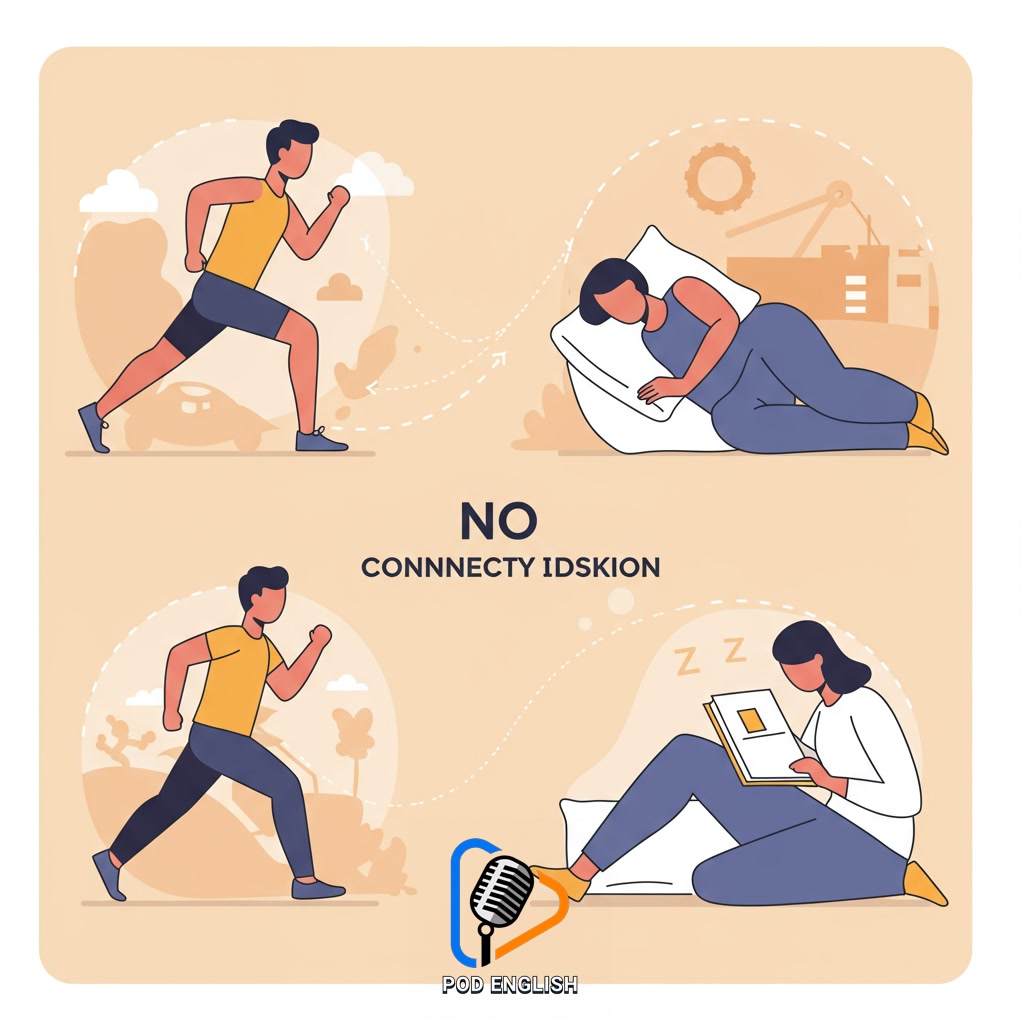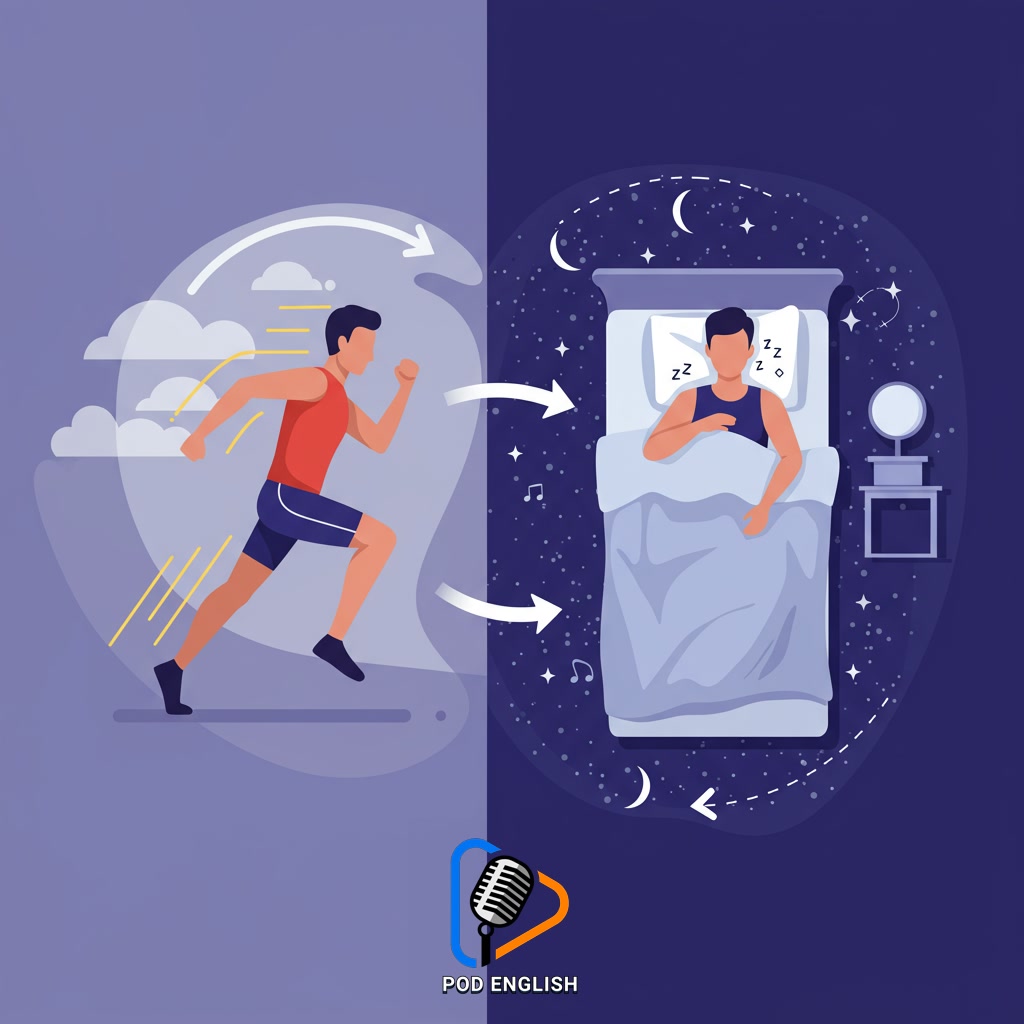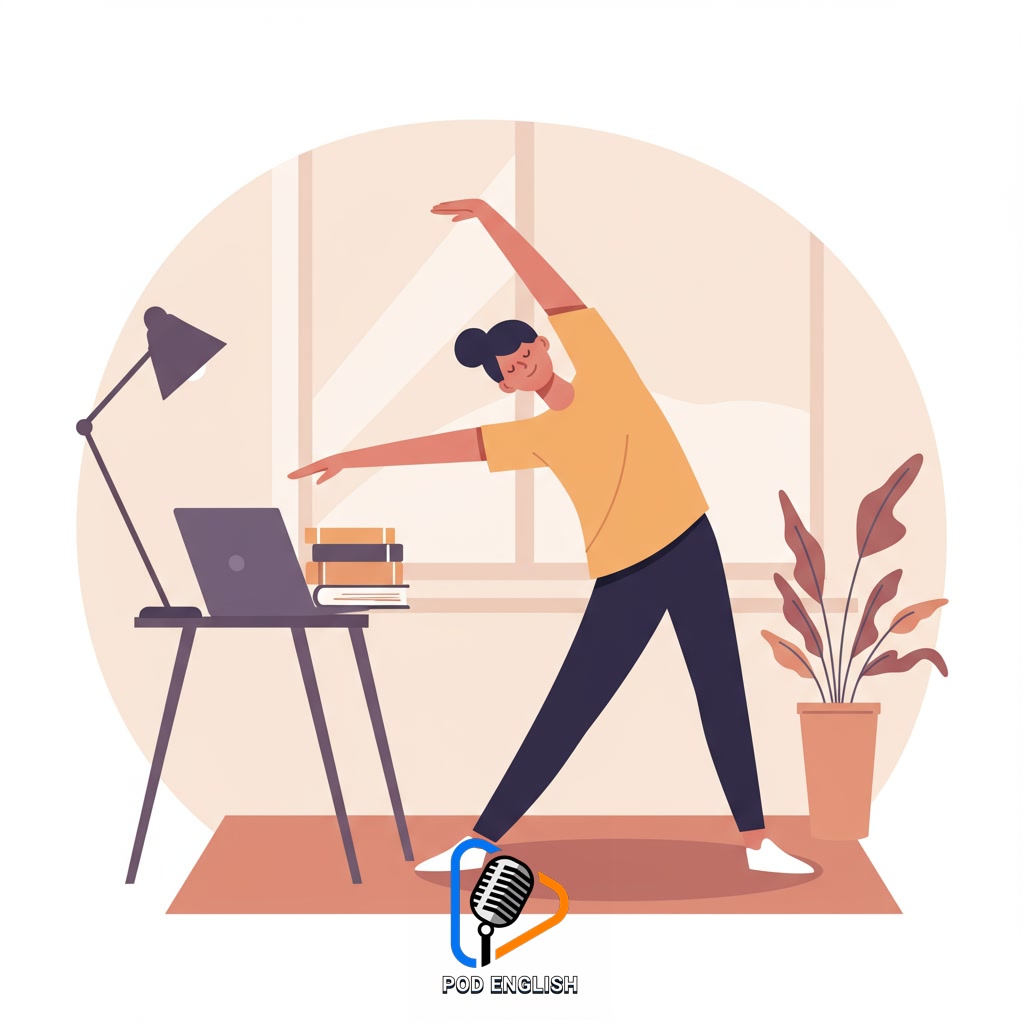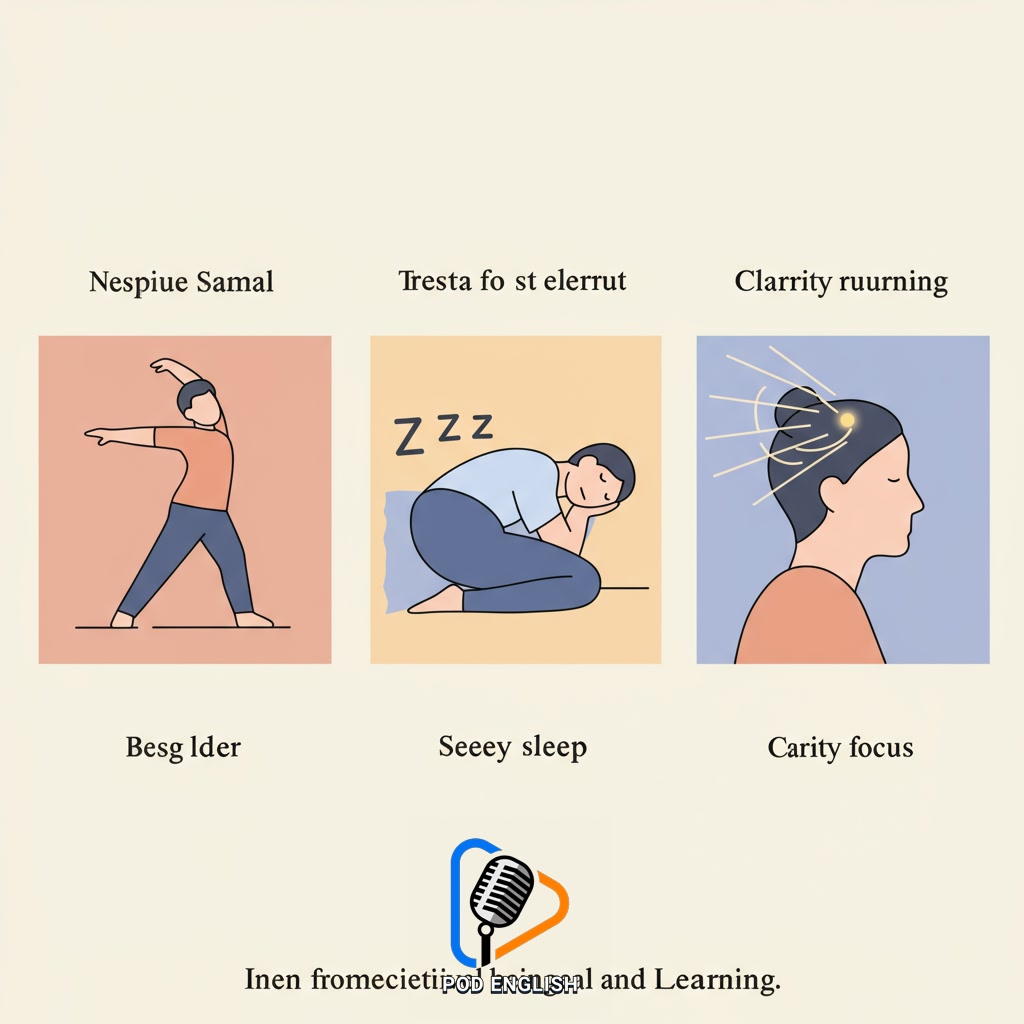Learn English
Exercise for Better Sleep and English Learning

This content explores the interconnected benefits of physical activity and quality rest, specifically how they can positively impact cognitive functions essential for learning English. It highlights how regular exercise can improve sleep patterns, which in turn enhances focus, memory, and overall brain health, creating a more conducive environment for effective language acquisition. Understanding this relationship can provide strategies for individuals seeking to optimize their study habits and improve their proficiency in learning English.
Table of Contents
- Section 1: Introduction: The Connection Between Exercise, Sleep, and Learning
- Section 2: How Exercise Improves Sleep Quality
- Section 3: The Role of Sleep in Cognitive Function and English Learning
- Section 4: Leveraging Exercise and Sleep for Enhanced English Learning
- Section 5: Practical Tips for Incorporating Exercise for Better Sleep and Learning
- Section 6: Conclusion: A Holistic Approach to Well-being and Learning
Section 1: Introduction: The Connection Between Exercise, Sleep, and Learning
Welcome to this exploration of how your physical activity can significantly impact your ability to learn. Often, we think of exercise and sleep as separate from studying, but they are deeply connected. Regular physical activity not only keeps your body healthy but also plays a crucial role in improving the quality of your sleep. When you sleep well, your brain functions better, which is essential for tasks like focusing, remembering new vocabulary, and understanding complex grammar – all vital components of learning English effectively. This introduction will briefly touch upon this fundamental link, setting the stage for understanding how optimizing your physical habits can create a more fertile ground for successful language acquisition.

Introduction: The Connection Between Exercise, Sleep, and Learning
Section 2: How Exercise Improves Sleep Quality
Building upon the idea that physical activity and rest are connected, let’s explore exactly how exercise benefits your sleep. Regular physical activity helps regulate your body’s internal clock, known as the circadian rhythm, which signals when you should feel awake and when you should feel sleepy. Exercise also increases your body temperature slightly; the subsequent cool-down afterwards can promote sleep. Furthermore, being physically active helps reduce stress and anxiety, common culprits for keeping you awake at night. By expending energy during the day, exercise creates a greater need for rest, making it easier to fall asleep and often leading to deeper, more restorative sleep cycles. This improved sleep quality is crucial for your overall well-being and cognitive functions.

How Exercise Improves Sleep Quality
Section 3: The Role of Sleep in Cognitive Function and English Learning
Building upon the idea that physical activity and rest are connected, let’s explore exactly how exercise benefits your sleep. Regular physical activity helps regulate your body’s internal clock, known… (This was the previous section’s content for context). Now, focusing on the ‘why,’ sleep plays a critical role in consolidating memories and processing information, which is essential for learning English. While you sleep, your brain actively works to strengthen neural connections related to new vocabulary, grammar rules, and pronunciation you encountered during the day. Quality sleep enhances your ability to focus and concentrate when you are awake, making study sessions more productive. It also improves problem-solving skills and creativity, helping you understand complex language concepts and use English more fluently. Simply put, a well-rested brain is a better learning brain.

The Role of Sleep in Cognitive Function and English Learning
Section 4: Leveraging Exercise and Sleep for Enhanced English Learning
Building upon the idea that physical activity and rest are connected, let’s explore exactly how exercise benefits your sleep. Regular physical activity helps regulate your body’s internal clock, known as the circadian rhythm, promoting more consistent and deeper sleep cycles. It can also reduce stress and anxiety, common culprits for sleep disturbances, making it easier to fall asleep and stay asleep. Furthermore, exercising can increase the amount of time spent in deep, restorative sleep stages. This improved sleep quality is crucial because it’s during these periods that your body repairs itself and, importantly for learners, your brain consolidates memories and processes information. By integrating regular exercise into your routine, you are not just improving your physical health; you are actively creating the conditions for better sleep, which directly supports optimal brain function necessary for effective English language acquisition.

Section 5: Practical Tips for Incorporating Exercise for Better Sleep and Learning
To effectively use exercise for enhancing both sleep quality and English learning, integrate moderate physical activity into your daily or weekly routine. Aim for activities you enjoy, such as brisk walking, jogging, swimming, or cycling. Consistency is key; even short, regular sessions are beneficial. Try to schedule workouts earlier in the day, ideally finishing at least two to three hours before bedtime, as intense exercise close to sleep can be stimulating. Consider incorporating brief physical breaks during long English study sessions – a few minutes of stretching or walking can improve circulation and mental alertness. Finding this balance helps regulate sleep cycles, leading to deeper rest, which in turn sharpens cognitive functions like memory retention and concentration, crucial for mastering new vocabulary and grammar in English.

Practical Tips for Incorporating Exercise for Better Sleep and Learning
Section 6: Conclusion: A Holistic Approach to Well-being and Learning
In conclusion, optimizing your English learning journey extends beyond textbooks and grammar rules; it involves embracing a holistic approach that prioritizes physical well-being. As we’ve explored, regular exercise is not just beneficial for physical health but acts as a powerful catalyst for improving sleep quality. Better sleep, in turn, significantly enhances cognitive functions crucial for language acquisition, such as focus, memory consolidation, and problem-solving. By consciously integrating physical activity into your routine, you create a virtuous cycle where a healthy body supports a rested mind, ultimately making the process of learning English more efficient, enjoyable, and sustainable. This synergy between movement, rest, and study is key to unlocking your full learning potential.

Conclusion: A Holistic Approach to Well-being and Learning













